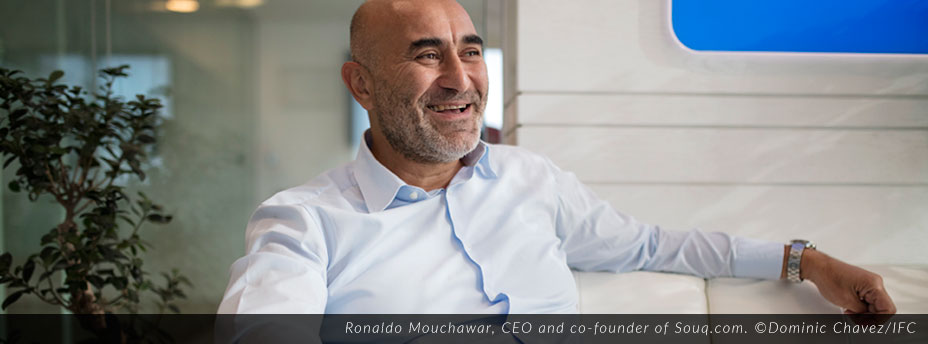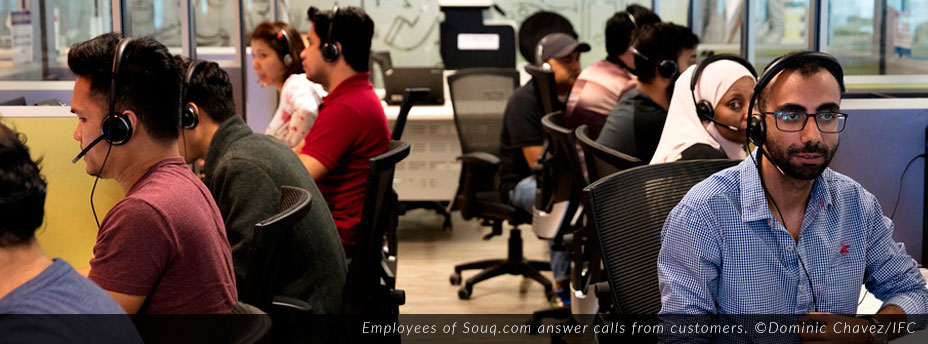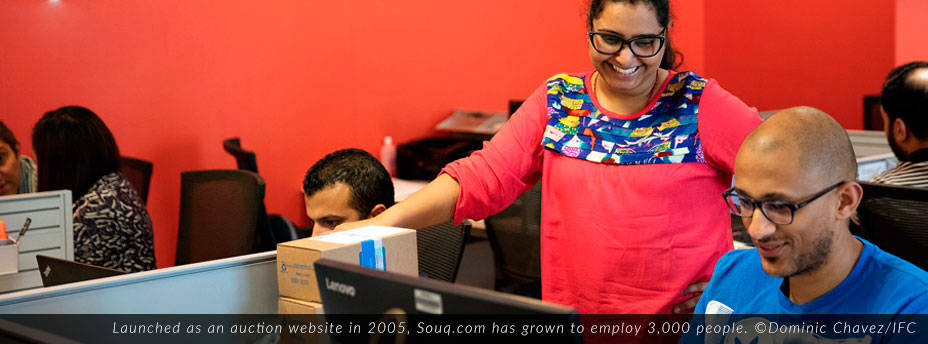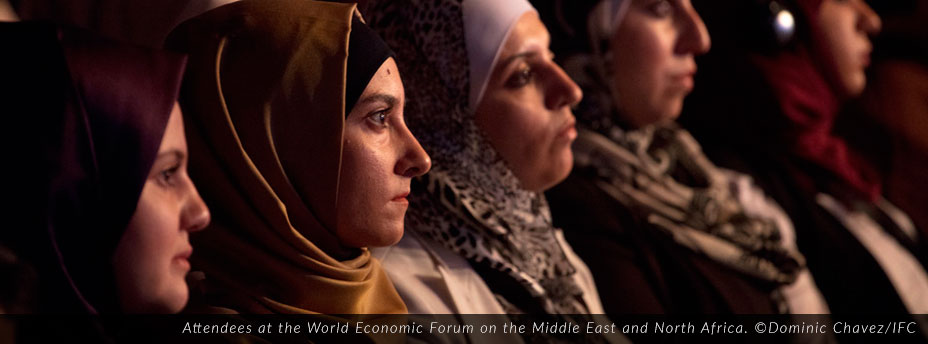| This is the third in a series of stories about entrepreneurs in the Middle East and North Africa who are attempting to create markets and opportunities in the region. IFC and the World Economic Forum brought 100 entrepreneurs to the WEF meeting in Jordan last week. |
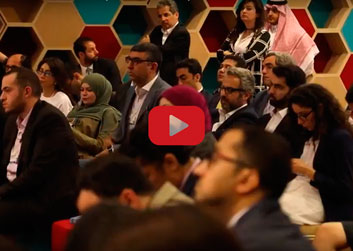
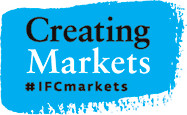 By Andrew Raven, IFC Communications
By Andrew Raven, IFC Communications
When Syria native Ronaldo Mouchawar and four friends decided to launch a small auction website in 2005, the effort seemed futile. Only 10 percent of the people in the Middle East and North Africa were online. Internet shopping was almost nonexistent.
But Mouchawar, who was based in Dubai, believed the Internet could transform the region, which is home to more than 300 million people.
"There was a massive need for Arabic content on the Internet," he recalled. "And we felt there was an important role for us to play."
Over the next decade, Mouchawar's small auction website would morph into Souq.com, an e-commerce giant with more than 4 million customers spread across four countries. IFC has supported Souq.com’s growth since 2015—when we and the Middle East and North Africa Fund, managed by IFC Asset Management Company, provided $27 million in financing to enable the website to beef up logistics, improve its payment infrastructure, and diversify its product range. The company, recently bought by Amazon, now has 3,000 employees and has helped support cross-border trade.
Souq.com's success is a testament to the ability of start-ups to drive society-altering change and create new industries from scratch, said Fadi Ghandour, Executive Chairman of Wamda Capital, a leading venture-capital fund.
"Big companies aren't innovating anymore,” said Ghandour, whose fund has invested in more than a dozen start-ups. "Innovation happens at the start-up level. [If you support entrepreneurs], they're going to create wealth and they're going to create jobs. Suddenly, you will have a 21st century economy.”
Ghandour was one of dozens of business and political leaders who were in Jordan last weekend for the World Economic Forum's annual conference on the Middle East and North Africa. The event included 100 entrepreneurs from across the region, who were sponsored by IFC and WEF. Much of the focus was on how start-ups are creating jobs and driving innovation in a region hungry for opportunity.
“We need to tell the world that things are happening in the Arab World,” Ghandour said. “It's not only about politics. It's not only about security. It's not only about Daesh [Islamic State]. It's is about young people going out, building [businesses] and creating hope for the future.”
An Ecosystem for Success
Despite the importance of start-ups for the future of the region, most still struggle to get seed money, find mentors, and navigate government bureaucracy. But the tide is slowly shifting, thanks in part to government reforms, greater awareness, and the support of institutional investors such as IFC.
Since 2011, IFC has invested more than $50 million in tech start-ups, incubators, and venture-capital funds across the region. These investments are part of a larger effort to help private companies create jobs, drive innovation, and forge new markets.
"We need to create an ecosystem for entrepreneurs to give them the best chance to succeed. This means giving them access to finance, reliable electricity, and broadband so they will have high-speed Internet connections," said IFC’s Chief Executive Officer Philippe Le Houérou. "If we create this ecosystem, start-ups in the Middle East and North Africa will thrive and build the economy of tomorrow.”
IFC's clients in the region include Fawry, an Egyptian tech firm that developed a cutting-edge electronic payment system. Today, more than 20 million people use the service, freeing them from using cash and greasing the wheels of Egypt’s economy. IFC has also invested in incubators such as Wamda Capital, Flat6Labs, and Algebra Ventures. They have not only funded start-ups but, just as crucially, provided them with mentorship and advice.
Knocking Down the Walls
Our investments in start-up companies often have a ripple effect. In the case of Souq.com, we helped the company double its customer base and expand its supplier network to 15,000 merchants. Souq.com also went on to invest in three tech start-ups itself.
Mouchawar said those companies all had one thing in common: the desire to drive social change, something that he believes is at the core of the best start-ups.
"Local entrepreneurs tend to solve local problems," he said. "You're growing up in an environment where you face challenges. You see how something can be done differently, how something can be done better.”
Since Mouchawar founded Souq.com 12 years ago, the number of well-established start-ups in the Middle East and North Africa has grown rapidly. That has left him bullish about the future of entrepreneurship in the region. “The walls are being knocked down,” he said. “We still have work to do, but we're getting there."
Follow the conversation: #IFCmarkets
Also available in: عربي
Published in May 2017
